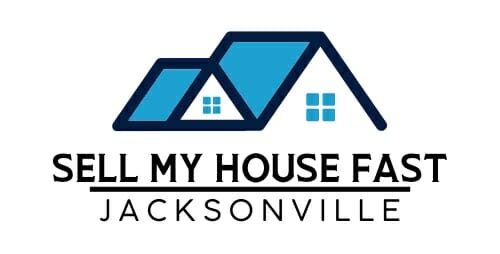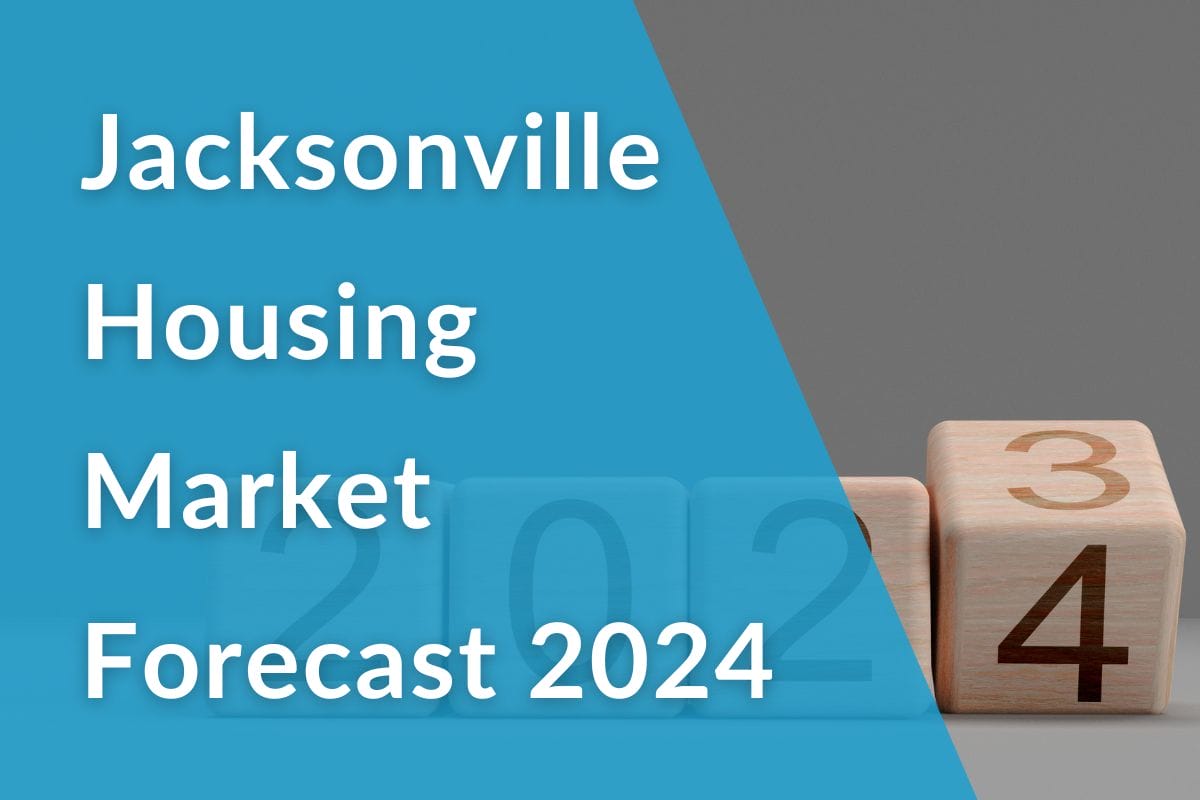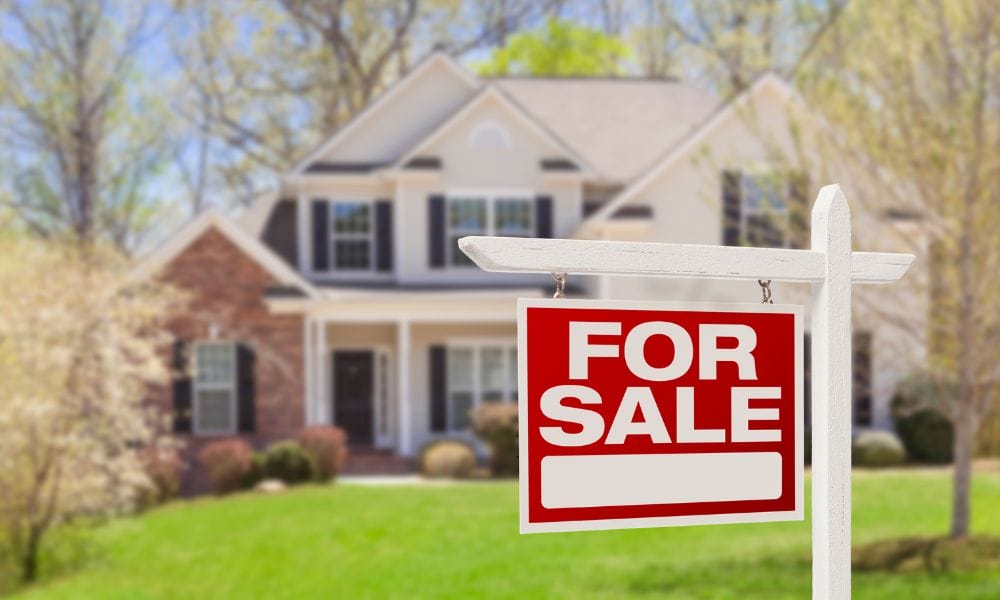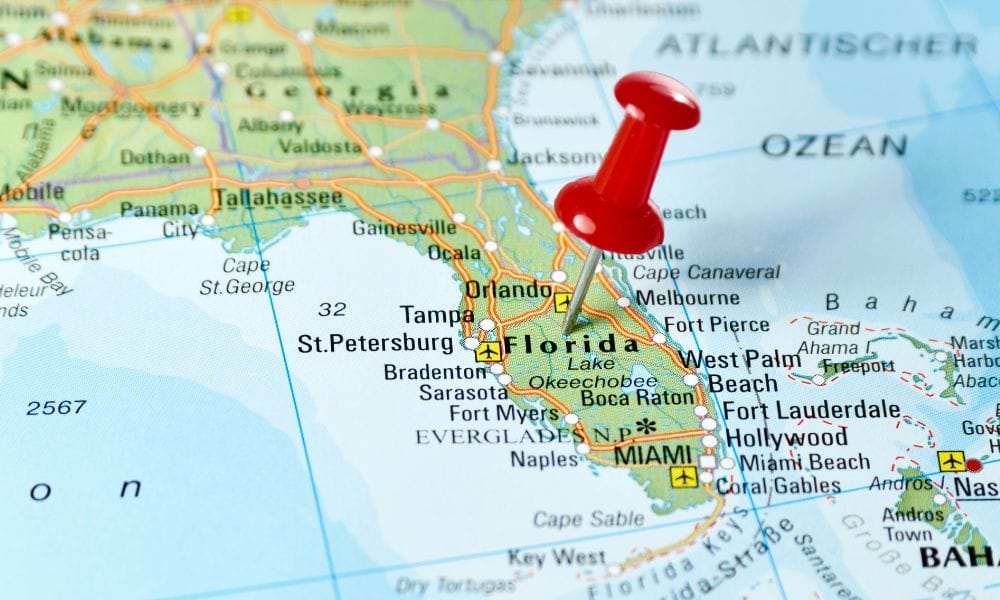Jacksonville’s real estate market has always mirrored its vibrant and dynamic nature. As we sail into 2024, a close examination of market trends becomes indispensable for anyone involved in real estate, whether flipping your first property or expanding an impressive portfolio.
The market’s pulse dictates the decisions of both buyers and sellers, making forecasts helpful and crucial for strategic planning.
Overview of the Jacksonville Real Estate Climate
The past year has witnessed a resilient Jacksonville housing market, marked by a steady climb in home values amidst national economic tremors. With a significant influx of newcomers enticed by its sprawling beaches and economic opportunities, Jacksonville’s real estate market has maintained an impressive buoyancy. It is a beacon of growth in Florida, offering a diverse range of properties catering to retirees, families, and young professionals.
Importance of Market Forecasts for Buyers and Sellers
Why should one care about market predictions? Simply put, they’re the compass that guides real estate stakeholders through the labyrinth of investment decisions.
For sellers, they signal when to list their homes to maximize profits, while for buyers, they hint at when to strike for the best value. In the chess game of real estate, forecasts help players anticipate moves and strategize accordingly.
With the guidelines set, let’s delve into the Jacksonville housing market forecast for 2024, armed with data and insights defining the year ahead’s contours.
Market Trends
In Jacksonville, the tides of the housing market have shown a blend of warmth and coolness, much like its coastal weather.
Last year’s trends have spilled over into 2024, painting a picture that’s both promising for some and exemplary for others.
Recent Changes in Home Values
Last year’s market data showcased a robust increase in property values, suggesting a city on the rise. However, it’s not all steady growth. Looking back, we see that while some periods marked notable highs, there were also valleys where values dipped.
This pattern of ebb and flow in home values is like the ocean waves that shape Jacksonville’s shores – some are high, some low, but all are part of a bigger cycle.
Comparison with Previous Years
Historically, Jacksonville’s housing market has been a patchwork quilt of ups and downs. There have been years of abundant growth that saw home values skyrocket and others where the market softened, mirroring the broader economic climate.
By placing today’s market within this historical tapestry, we gain perspective on the current health of the real estate scene in this vibrant city.
Housing Prices and Affordability
Median Sales Price Trends
As of early 2024, the median sales price for homes in Jacksonville is $375,000. This represents a 4% climb from the previous year, reflecting a city becoming pricier for homebuyers. The numbers tell us that the dream of owning a home here is inching in cost, much like the city’s famous skyline.
Impact on Buyers and Sellers
For sellers, this uptick means their investments yield fruit; the property they bought years ago is now worth more. On the flip side, buyers face steeper prices and a more competitive market.
Those looking to purchase homes must navigate a landscape where affordability is increasingly a concern, with the Home Affordability Index dropping by 7.3% to a score of 70.
Inventory and Market Activity
Homes on the Market and Demand
The active inventory of homes for sale has grown by 31.6%, with 5,638 properties up for grabs. This surge suggests that homeowners are eager to sell, sensing an opportune moment to capitalize on rising prices.
However, closed sales have decreased by 3.8%, indicating a mismatch between the number of homes available and the number of buyers willing or able to purchase.
New Listings and Market Dynamics
New listings have seen a remarkable 33.5% increase, adding 2,853 homes to the market. It signals a robust turnover in property availability, giving potential buyers more options.
However, this increase in supply also hints at a market that’s cooling down, where homes are selling slower than they were listed.
Demand Dynamics
Closed Sales and Pending Sales Insights
In the dance of demand, closed sales have taken a slight step back with a decrease of 3.8%, settling at 1,081 homes sold. This suggests that while buyers are interested, there needs to be more certainty in taking the final leap.
On the other hand, pending sales, which are deals about to close, have seen a sharp 23.3% drop. With only 1,284 homes in the pipeline, it signals a cooling trend where fewer buyers are ready to commit compared to the previous year.
Factors Influencing Buyer Demand
Several key players tug at the strings of buyer demand. Interest rates, for instance, have been a critical factor. With mortgage rates hovering around 7%, some potential buyers are likely holding off on big purchases, hoping for a rate dip.
The economic outlook, shadowed by talks of inflation and a possible recession, has also cast a cloud of uncertainty, making buyers think twice before signing on the dotted line.
Sales Performance
Median Days on Market
The speed at which homes sell can tell us much about the housing market. In Jacksonville, homes are taking an average of 56 days to sell. That’s quicker than last year by about 1.8%.
For sellers, this means that while they don’t have to wait too long, they may not want to plan for a lightning-fast sale. Buyers can breathe; they’ve got a moment to think things over, but not too long – homes aren’t sticking around forever.
Interpretation for Strategies
With homes selling slower than before, buyers might feel less pressure to make an instant decision. They might also find some wiggle room for negotiation. Sellers must adjust their expectations and pricing strategies to attract buyers in a slightly cooler market.
The ratio of Closed Sales Over the List Price
In Jacksonville, the number of homes selling over the list price can tell us how hot the market is. Currently, 10.5% of homes sell for more than the seller asks.
That’s an increase of 4% from the previous year. It shows that competition exists while the market may be balancing out, especially for well-coveted spots.
Market Competition Insights
This climb in homes selling over list price means buyers are still fighting to win the bid for certain desirable homes, often willing to pay more than the sticker price.
This could be good news for sellers with homes in popular areas or with sought-after features. For buyers, it’s a heads-up that for the best homes, they may need to come in with a strong offer to seal the deal.
Economic Indicators
Impact of Interest Rates on the Housing Market
Interest rates play a big role in the housing market, especially in Jacksonville. When rates go up, getting a mortgage becomes more expensive. This means people can borrow less money, and some might decide to wait before buying a house.
For example, if interest rates rise from 6% to 7%, monthly payments on a new mortgage could increase significantly, making it tougher for buyers to afford their dream homes. With interest rates around 7% this year, we’ve seen how they’ve put a damper on folks rushing to buy houses, leading to a cooling effect on the market.
Employment Trends and Their Influence on Real Estate
Jobs and houses go hand in hand. When more people have stable jobs, more folks can think about buying homes. Jacksonville has been doing well job-wise, with employment growing in the healthcare, finance, and logistics sectors.
This growth means more people are moving to the area for work and looking for places to live, pushing up demand for housing. But it’s not just about having a job; it’s about how much these jobs pay. If wages don’t keep up with house prices, even people with jobs might find it hard to buy a home.
Regional Comparison
Jacksonville stands out for its unique blend of affordability and quality of living when placed in the broader Florida real estate landscape. In the Sunshine State, where cities like Miami and Orlando often steal the spotlight with their glitzy appeal, Jacksonville emerges as a city that pairs economic sensibility with coastal allure.
While the median home price in Miami might soar to a staggering $549,450, Jacksonville homes average around a more modest $295,200, offering a breath of financial relief without skimping on the coastal lifestyle.
Jacksonville vs. Other Florida Cities
Comparatively, Jacksonville’s market has shown robust growth without the volatility in some of its sister cities. For instance, the past year has seen a steady 4% growth in median sales prices in Jacksonville, which, while modest, indicates a stable market less prone to the dramatic swings that characterize some of the state’s other markets. Furthermore, with a 33.5% increase in new listings, the city ensures that new buyers have various options, a testament to its responsive and growing market.
Jacksonville’s Position in the National Market
On the national stage, Jacksonville’s housing market is both a competitor and a sanctuary. Against skyrocketing prices in metropolitan giants like New York City or San Francisco, Jacksonville’s market is not just a breath of fresh air but a beacon of opportunity. With a home affordability index of 108.5 for condominiums and a generous 70 for single-family homes, the city is accessible to first-time homebuyers and seasoned investors alike. It’s a place where the American dream of homeownership still feels tangible, even as other markets seem to slip further out of reach.
Neighborhood Focus
Top Performing Neighborhoods in Jacksonville
In Jacksonville, some neighborhoods consistently rank at the top for homebuyers. With its historic charm and artsy vibe, areas like Riverside have seen home values rise due to their popularity. Homes here often receive multiple offers, sometimes above the asking price, and don’t stay on the market long — a sign of a thriving neighborhood.
Another top performer is San Marco, whose median home price is a testament to its desirability. With its picturesque squares, boutique shops, and proximity to downtown, San Marco offers a blend of suburban peace with urban convenience. Here, homes command a median price that surpasses the city’s average, making it a lucrative spot for sellers.
Emerging Areas for Investment
For those looking to invest, neighborhoods like Oceanway and Northside show potential. These areas benefit from new development and a growing community appeal. For example, Oceanway’s new listings have surged by over 50% in the past year, signaling a neighborhood on the rise. Its proximity to top-rated schools and parks makes it an attractive option for families.
Northside is another area to watch, with an impressive increase in home values over the past year. It’s a place where investors find opportunities, especially in properties ripe for renovation. With its mix of urban and rural landscapes and a median home price below the city’s average, Northside offers an affordable entry point into the Jacksonville market for homeowners and investors.
Property Types
Single-Family Homes Analysis
In Jacksonville, single-family homes are a big deal. They’re what most people think of when they dream of buying a place to call their own. In 2024, the numbers show that these houses are selling for an average price of $375,000, up 4% from last year. That’s good news for folks selling their homes because it means they’re likely getting more money than they would have before. But sales have dipped by 3.8% because prices increased, or fewer folks are looking to buy now.
Condominiums Market Overview
Condos in Jacksonville are a bit different. They’re usually smaller than single-family homes and sometimes have extra perks like a gym or a pool that everyone shares. The latest scoop is that condos are going for about $242,450, slightly less than last year. They’re selling slower than houses, with sales dropping by 30.7%. But the cool thing is, they’re selling faster than before, with days on the market down by 22.4%. That’s quick!
Townhouses and Multi-Family Units Review
Townhouses and multi-family units are like the middle ground between houses and condos. They’re great for people who want something bigger than a condo but smaller than a house. These places are doing okay, with townhouses getting more expensive — their prices increased by 7.5%. Multi-family units, where more than one family can live under the same roof, are cheaper than last year. But there’s a catch: there aren’t as many for sale, so if you find one you like, you might want to grab it fast!
To sum it all up, Jacksonville has options if you want a big yard with a single-family home, a cozy condo, or a townhouse with a little bit of both. The prices are pretty good, especially considering how much it costs to live in other cities. So, if you’re considering buying, it’s a good time to look around and see what fits you best.
Affordability
When talking about whether folks can afford to buy a home, we turn to something called the Home Affordability Index. Think of it like a score that tells us how easy or hard it is for the average person to buy a house in their city. In Jacksonville, the score is 70 for houses and a bit higher at 108.5 for condos. A higher number means more people can afford to buy a place without breaking the bank.
Home Affordability Index Discussion
These numbers suggest Jacksonville is still within reach for families, young professionals, and retirees. This score is good news, especially for younger folks just starting out or seniors on a fixed income. It means that in Jacksonville, compared to many places where the dream of owning a home feels like, well, just a dream, it’s still possible here.
Median Income vs. Home Prices
Let’s talk about the money folks make versus the price of homes. In Jacksonville, the average family brings in around $51,000 a year. Now, if we look at the price of homes, with the median at about $295,200, you can see why that affordability score makes sense. People here don’t have to spend all their money just on a place to live. In some cities, homes cost a lot more compared to what people earn, but Jacksonville keeps things more balanced. That means more cash for college savings, family vacations, or dinner.
So, if you’re considering moving to Jacksonville or buying a home for the first time, these numbers tell you you’re looking in the right place. It’s a city where the dream of having a home is still alive and well.
Predictive Insights
When we try to guess where the housing market in Jacksonville is headed, we look at the near future and down the road. It’s like checking the weather for tomorrow and the next season.
Short-Term vs. Long-Term Market Predictions
In the short run, things look steady. We’re expecting small jumps or price drops or how many houses are up for grabs. It’s predicted that prices will bump up a little bit, around 2-3%, in the next year. But if we look further, say in the next five years, experts are guessing that Jacksonville’s housing market could see a bigger lift, maybe around 4.5%. That’s because more people want to move here, and there’s not a huge pile of homes waiting for them.
Expert Opinions and Economic Forecasts
Now, when the people who live and breathe numbers and markets – the experts – talk about Jacksonville, they give it a thumbs up. They see signs that the market here is stronger than elsewhere. They point out that even when the whole country’s market cools down, Jacksonville still holds its ground well. They’re also saying that the jobs in the city are growing, which is a big deal because when more people have jobs, more people can buy homes.
For example, one of the big-shot economic forecasters, Zillow, thinks the value of homes in Jacksonville could climb by about 4.5% by the end of 2024. That’s a bigger jump than many other places in the country. And the folks over at the National Association of Realtors? They’re on the same page, expecting a steady rise, not a roller coaster.
So, what does all this mean? If you’re considering buying a home in Jacksonville, it might be smart to do it sooner rather than later. As for selling, your home might be worth more, so you’ve got some thinking to do.
Buyer and Seller Strategies
Navigating the Jacksonville housing market in 2024 demands smart tactics and timing. With the right approach, buyers can secure their dream homes within their budgets, and sellers can optimize their profits.
Best Practices for Buyers in the Current Market
For buyers in Jacksonville, the landscape is promising. Still, it requires a keen eye for deals and an understanding of the market’s nuances. Here are some strategies to consider:
- Analyze the Trends: With median home prices currently at $375,000 and interest rates projected to stabilize, understanding these patterns can help buyers determine the right moment to make an offer.
- Get Pre-Approved: A pre-approval for a mortgage clarifies your budget and strengthens your negotiation position, showing sellers you’re serious and ready.
- Explore Various Neighborhoods: Diversify your search. While some areas have seen home values soar by 8.8%, others offer more competitive pricing, providing opportunities to find value for money.
- Consider Timing: Homes in Jacksonville are selling 1.8% faster than last year, averaging 56 days on the market. Timing your search during cooler months might yield better results as competition wanes.
Tips for Sellers to Capitalize on Market Conditions
Sellers can also find success in the current market by following strategic steps:
- Price It Right: While Jacksonville homes are fetching prices close to their listing amounts, with a 96.7% list-to-sale price ratio, setting a competitive price can attract more buyers and potentially spark a bidding war.
- Timing Your Sale: With new listings up by 33.5%, choosing when to enter the market is crucial. Aim for periods with fewer new listings to stand out more easily to potential buyers.
- Stage Your Home: A well-staged home can sell faster and for a better price. In a market where buyers have options, make your home the most appealing choice.
- Offer Incentives: Consider creative incentives like closing cost contributions or home warranties, especially if your home’s features are comparable to many others in the area.
By employing these strategies, buyers and sellers can confidently navigate the Jacksonville housing market, making informed decisions that align with their financial and lifestyle goals.
Investment Potential
Jacksonville’s housing market isn’t just about buying and selling homes—it’s also an arena ripe for investors looking to expand their portfolios with rental properties. With an eye on the future, understanding the investment potential is key to making smart choices.
Rental Market Trends
When you peek into the rental market of Jacksonville, it’s like opening a window to a landscape where demand and supply dance to the tune of economic swings. As of the last check, the median rent for a cozy spot in Jacksonville hovers around $1,550—a number that’s quite friendly to your wallet compared to the national average. This affordability makes Jacksonville an attractive spot for renters, which, in turn, spells out opportunities for investors.
Yet, even in this sunny scenario, there’s a cloud or two. The rental market has seen a 7% dip in the past year, suggesting a need for caution. Despite this, the influx of new residents to Jacksonville’s shores keeps the rental scene buzzing, making it a promising ground for those looking to invest in property for leasing.
Long-Term Return on Investment Analysis
If you’re thinking about the long game, Jacksonville’s real estate market has historically smiled on those who wait. Property values have significantly climbed over the past decade, with an average annual appreciation rate that keeps pace with the best of them. This growth paints a picture of a city where real estate isn’t just a purchase but a solid investment for the future.
In the last two years alone, home values have shot up by over 20%, a clear sign of Jacksonville’s robust health in real estate. For investors, purchasing property here isn’t just about the immediate cash flow from rentals—it’s also about the potential for a payday when it’s time to sell.
By marrying these rental trends with the overall growth in home values, Jacksonville emerges as a city where investing in property can be as bright as its sunny beaches. Whether you’re looking to rent out a downtown condo or a beachside bungalow, the market’s current state promises immediate rental income and long-term gains.
Potential Risks
Possible Market Downturns
In any market, the possibility of a downturn looms like a storm on a clear day. In Jacksonville, while the market remains robust, certain indicators suggest the need for caution. For instance, if the median sales price, which has seen a 4% uptick to $375,000 in early 2024, starts to outpace the growth of local incomes, it could signal trouble. A decrease in closed sales, down by 3.8%, hints at a cooling period where demand may wane.
What could precipitate a downturn? A spike in unemployment or a major industry pulling out of the city could lessen the demand for housing. Additionally, if interest rates, which impact mortgage affordability, rose sharply, this could further reduce the number of willing and able buyers in the market.
Impact of External Economic Factors
Jacksonville does not exist in a bubble. External economic forces wield considerable influence over its housing market. National policy changes, global economic shifts, or fluctuations in the stock market could shake the confidence of potential homebuyers and investors. As of now, with the national average interest rate on a 30-year fixed-rate loan around 7.5%, even a small increase could significantly dampen buyer enthusiasm.
Similarly, the local market feels the ripple effects of wider economic trends. If the national economy were to experience a slowdown, this could trickle down to the local level, resulting in fewer people moving to Jacksonville and a subsequent drop in housing demand. It’s also worth noting that the affordability index, currently at 70, has declined by 7.3% from the previous year, suggesting that fewer people can afford to buy homes at current prices.
In summary, while the Jacksonville housing market shows signs of strength, it’s not immune to potential downturns. Keeping an eye on economic indicators and external factors is crucial for investing or buying property in the coming year.
Need To Sell Your House Fast in Jacksonville?
The real estate dance is intricate. Timing is everything, and for those who need to sell their homes fast in Jacksonville, the traditional route may not be the quickest two-step. Enter cash buyers – the rapid response team of the real estate world.
Advantages of Selling to Cash Buyers
Cash buyers bring a simplicity to the table that traditional buyers often can’t. Cash sales can close in as little as two weeks, a stark contrast to the 30 to 60 days it might take with a financed deal. In Jacksonville’s dynamic market, where median home prices hover around $375,000 as of early 2024, the quick closing time is a significant advantage for sellers looking to capitalize on the current demand.
Moreover, cash deals are less likely to fall through. In a traditional sale, nearly 1 in 4 deals hit snags due to financing issues. Cash buyers eliminate this uncertainty, offering sellers a nearly 100% certainty of sale – a reassuring statistic in a market that has seen a slight decrease in closed sales, down 3.8% from the previous year.
Simplifying Real Estate Transactions with Cash Offers
Cash offers can untangle the often-knotty process of selling a home. They typically waive financing, appraisal, and home inspection contingencies – hurdles that can add weeks to the sales process and cause no small amount of stress. For instance, Jacksonville’s market has seen a 10.5% increase in sales over the listing price, reflecting a competitive environment where cash offers are likely to win.
In summary, selling to cash buyers in Jacksonville could mean a faster sale, a more reliable process, and less paperwork. It’s a streamlined path in a city where the real estate tempo is as lively as its beaches.
Conclusion
As we wrap up our exploration of Jacksonville’s 2024 housing market, it’s clear that the city’s real estate landscape is as sunny as its beaches. With a 4% year-over-year growth in median sales price, climbing to $375,000, and a substantial increase in new listings by 33.5%, Jacksonville is poised for another bustling year in real estate.
Summary of Key Points
The market has shown us that Jacksonville is a place where diversity in property and opportunity thrives. A median sale price increase to $375,000, coupled with a 5.2 months supply of inventory, signifies a balanced market teetering towards buyer favor. And with homes appreciating steadily, the confidence in Jacksonville’s real estate stability is well-placed. A noteworthy 10.5% of homes closed over the list price, showcasing the city’s competitive edge.
Final Thoughts on Jacksonville’s 2024 Housing Outlook
The forecast for Jacksonville’s housing market in 2024 is optimistic. With new construction on the rise and a steady flow of new listings, there’s a healthy balance between supply and demand. The economic indicators suggest a market ripe for buying and selling, with room for negotiation. Sellers can look forward to a market that still favors well-priced, move-in-ready homes, while buyers may find more room to breathe and more options.
The narrative of Jacksonville’s real estate market is one of resilience and opportunity. The market seems ready to embrace challenges and changes as the city grows and attracts a diverse population. Whether you want to invest, relocate, or sell, Jacksonville’s 2024 housing market is fertile ground for your real estate ambitions.









